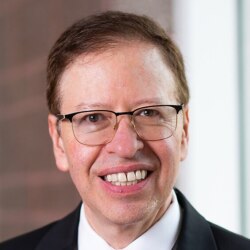California May Never Get High-Speed Rail as Brightline Also Struggles
Although Governor Newsom and Rail Authority management are in denial, President Trump’s decision to claw back $4 billion in California high-speed rail funding is likely the coup de grace for the state project. But the state’s other high-speed rail project, Brightline West’s effort to connect Rancho Cucamonga with Las Vegas, also faces headwinds and may fail. The result could be no 200mph trains in California by the 2030s, and possibly never at all.
Brightline West originally expected service to begin in time for the 2028 Summer Olympics. But when it went to the bond market for funding earlier this year, it pushed out its projected service inception date to December 2028. That revelation was included in the rail company’s official statement, which also provided potential bondholders a laundry list of risks that could derail the project entirely.
Among those risks is the inability to raise the rest of the capital it needs to complete the project. Thus far, Brightline West has received a $3 billion federal grant and issued $2.5 billion in bonds, but it will need at least $6 billion of additional financing to finish construction and pay for rolling stock.
Brightline West’s initial bond issue carried a high coupon rate of 9.5% and was not rated by any of the nation’s credit rating agencies. But on July 17th, the bonds were trading at around 86 cents on the dollar, implying a yield of over 11%. This suggests a loss of confidence among investors that could make raising additional capital more difficult.
The bond’s weakness may be related to problems that Brightline is having in Florida, even though Brightline West is financially independent of the Florida operation. Nonetheless, Brightline’s struggles on its home turf in Florida could have negative implications for its expansion to the West.
In Florida. Brightline lost approximately $549 million in 2024, despite revenue more than doubling compared to 2023. Operating expenses rose to $341 million versus just $188 million in ticket sales and other revenue. Relative to Florida, labor costs are higher in California, so operating expenses will be even more of a challenge out here if Brightline West is able to inaugurate service.
Further, Brightline deferred a July 15 interest payment on high yield bonds it had issued to fund its Florida operations. This deferral, while not considered a default under bond documents (as that requires missing three consecutive payments), suggests that the company is facing cash flow pressures.
Brightline’s Florida bonds have already been downgraded by credit rating agencies. For example, Fitch downgraded Brightline East LLC bonds to CCC+ in May citing the likelihood of a default in 2027.
Finally, the company is facing negative publicity around the safety of its Florida service. The Miami Herald recently reported that 182 people have been killed in train collisions since Brightline operations began. Although these deaths are mostly the result of suicides and carelessness on the part of those crossing the tracks, the coverage still poses reputational issues for Brightline. Fortunately, its California service will not have any grade-level crossings and will be operating mostly in low population areas, and, as a result, will have less risk.
Having just enjoyed high-speed rail travel in China and Japan, I am rooting for Brightline to succeed. While I think the state’s LA to SF project has been a terrible waste of taxpayer money, I still hope high-speed rail can succeed under private ownership in the US. But, sadly, the news flow thus far in 2025 does not augur well.
The impending collapse of California High-Speed Rail and the struggles of Brightline West should serve as a warning to Los Angeles County to stop wasting taxpayer money planning its own High Desert Corridor high-speed rail service. Once one realizes that there will probably never be a California high-speed rail station in Palmdale and there may not be a Brightline station in the Victor Valley, planning a link between the two stations now seems like the height of folly.
Marc Joffe is a Visiting Fellow at California Policy Center and the president of the Contra Costa Taxpayers Association.
